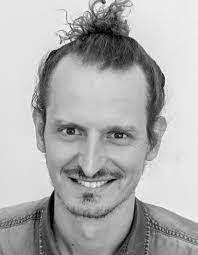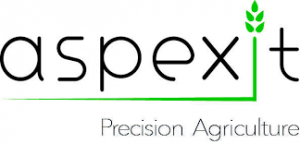After setting up his start-up Aspexit, Corentin Leroux, a former doctoral student with the #DigitAg label, is launching this free open-source platform that references digital tools in agriculture.
You don't know the digital tools on the market? You don't necessarily have the time to learn about operational tools and/or the latest news? This platform is for you! You will have access to free content that is regularly updated by independent actors and by companies in the market (after moderation of the content).
This platform offers you the possibility to give your opinion on the digital tools of the market in the form of notes and comments. All these opinions will be readable by the community (and will eventually be available by user profile of the platform). These opinions will allow the whole community to judge the interest and/or maturity of digital solutions to support the farming profession.
Access the directory of digital tools in agriculture. More than 1100 tools are referenced!
Last December, Corentin Leroux defended his doctoral thesis with the #DigitAg label. He looks back on his career as a doctoral student and tells us about his post-thesis project: the creation of his company, Aspexit, which aims to support the agricultural sector in its precision agriculture projects.
With his multidisciplinary tastes for biology, mathematics and physics, Corentin decided to go to an engineering school in agronomy. In his 2nd year at Montpellier SupAgro, he discovered the AgroTIC course. Very quickly, precision agriculture and its innovative themes is a multidisciplinary field that interests him. He completed this master's specialization in a work-study program at Telespazio in Bordeaux, on aerial imaging processing applied to viticulture. He then went on to complete a Cifre thesis at Smag
Can you summarize your subject and its results?
During my thesis, I worked on the processing of spatial information in precision agriculture, especially on intra-cell yield data, which are pioneering and quite symbolic data in precision agriculture. One of the aspects that I particularly liked was to be able to mobilize skills in computer science, statistics, geomatics and agronomy.
The original objective of my project was to set up an operational web service within SMAG, to process the yield maps of the members, and to use them for operational agronomic models, such as the implementation of fertilization plans for phosphorus and potassium.
I mainly worked on methodological developments to facilitate and automate the processing of yield data, with obviously subjacent research questions. For example, I worked on the reliability of yield maps, on the representation/mapping of data in space (zoning), or on the description/characterization of intra-plot variability.
This work has raised several research questions, in particular on how to eliminate a noise / bias variable in space, on how to take into account operational constraints and expertise in the division of a plot into homogeneous zones ... The objective being to develop an operational web service, it was necessary to integrate in the reflection the fact that the methods are automatable and robust.
At the end of my thesis, an operational processing chain was set up to exploit and process the yield maps. Nevertheless, there is still work to be done to use these yield maps to refine the recommendations of an operational fertilizer service.
Personally, I was a bit frustrated during my work-study and thesis, because I did not work enough with the final beneficiaries of the services I worked on, namely the actors in the field: the cooperatives, the farmers... In spite of an applied subject, I did very little co-construction with these actors. In my thesis, there is always a cursor between the research work, where you have to propose a new way of seeing things, formalize approaches, publish..., and the operational work. I would have liked to go further on this last aspect. In fact, I always told myself that this did not correspond exactly to me, that I had to position myself differently. After this very formative period in research, I wanted to be able to keep this aspect, but to continue in the operational field.
Processing data interests me, it's stimulating, I want it to be useful. I want to get closer to the cooperatives, the service companies, the field. To be able to say "what do you need? we can work on a tailor-made basis, co-construct a service." We need to understand how the actors work and what is not going well in the field.
That's why, and also because I've always had the idea of being an entrepreneur, I thought very early on about building a business project that matched my expectations and values. I always wanted to try, there is nothing more rewarding in my eyes than to set up a project yourself, to defend your ideas. You have to take the time to sit down and think about what you've learned and what you want, and then go for it. It's cool, I'm not taking a huge risk.to try. The goal isn't to be alone either, I would love to be able to hire, but if it doesn't work out, I would have learned a lot.
How do you prepare to create your own company?
By building your network, through meetings. You shouldn't hesitate to contact people, more people respond than I thought, they are happy to take the time to talk. My thesis supervisors also continued their support, by rereading my application files for example.
By relying on a maximum number of support mechanisms, entrepreneurship networks, and business gas pedals, such as the BGE, French Tech, and the BIC... It is not always easy to know everything that exists, whether it is before, during or after the creation of a company.
It is not always easy to know everything that exists, whether it is before, during or after the creation of a company. And also by presenting competitions, it brings visibility but also teaches how to present oneself, to clarify one's offer, to write one's project. For example, the Du doctorat à l'entrepreneuriat en Occitanie (From doctorate to entrepreneurship in Occitania) competition, initiated by the Region with the i-site MUSE and the SATT AxLR, for which I received the public prize. I also passed the concours Graines d'Agro competition. This allowed me to benefit from workshops that prepare me for starting a company: business plan, project management, pitch....
I also started early with communication, with personal support: my roommate helped me to build the visual identity by taking care of the logo and the graphic charter, my mother took the "professional" photos, I opened the website and also an information blog.
[Concours] Du doctorat à l’entrepreneuriat en #Occitanie: ce soir, le @CollegeDoctoUM @umontpellier & l’école des docteurs de @Univ_Toulouse recompensent les meilleures initiatives entrepreneuriales de jeunes docteurs ou doctorants de la région @Occitanie @IMTMinesAles @SATTAXLR pic.twitter.com/AMbKqtiMGq
— Université de Montpellier (@umontpellier) December 11, 2018
In Latin, "Aspexit" means to search, to examine... What is the R&D offer of your startup project?
The idea is to support players in the agricultural sector, such as cooperatives, technical institutes, or service companies in their precision agriculture projects.
In my opinion, data collected on its own is not very valuable. It must be placed in a specific production context, processed by high-performance, customized algorithms, and discussed with the players involved: farmers, advisors, cooperatives, etc. .... I have a real desire to generate concrete decisions and actions in the field, to work with multi-disciplinary approaches in agronomy, pedology, computer science, geomatics, statistics, etc., and to create links between public and private players in the agricultural sector.
My value proposition is really a tailor-made support for these actors, through data processing, monitoring, training and follow-up of precision agriculture projects. For example: customized analysis of experimental data in microplots or in strips; exploitation and processing of high-resolution vegetation maps; audit of an information processing chain in precision agriculture; QGIS training adapted to the needs of the agricultural sector; reliability and zoning of intra-plot yield maps...
I would like to be able to hire a computer developer to manage the structuring, architecture and exchange of data with my potential clients, and then, if the services allow it, statisticians and agronomists to accompany me on the data processing and monitoring services.
3 months after his defense, Corentin won the 10th edition of the Graines d'Agro competition, where he won the Graine d'Excellence prize. He now has to join an incubator to create his company and approach future aspexit clients. If you wish to meet him, Corentin will be present at SIMA 2019.
Michel Penet, Head of @GroupamaMed and Chair of @Fond_Agro presents the Graine d'Excellence award ?#innovation #entrepreneuriat pic.twitter.com/tIywsHSf9L
— GroupamaMed (@GroupamaMed) 19 février 2019
Aspexit offers to support players in the agricultural world in their digital transformation with customized R&D services in precision agriculture
www.aspexit.com - cleroux [AT] aspexit.com |
At a glance : his thesis manuscript and publications




